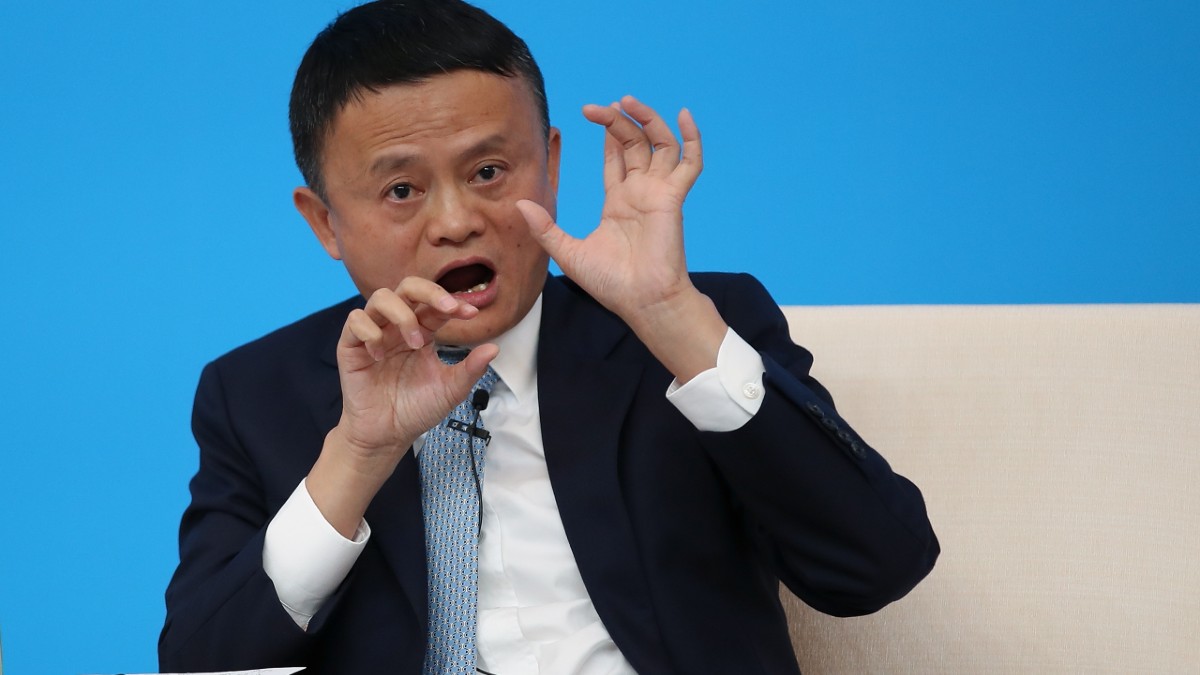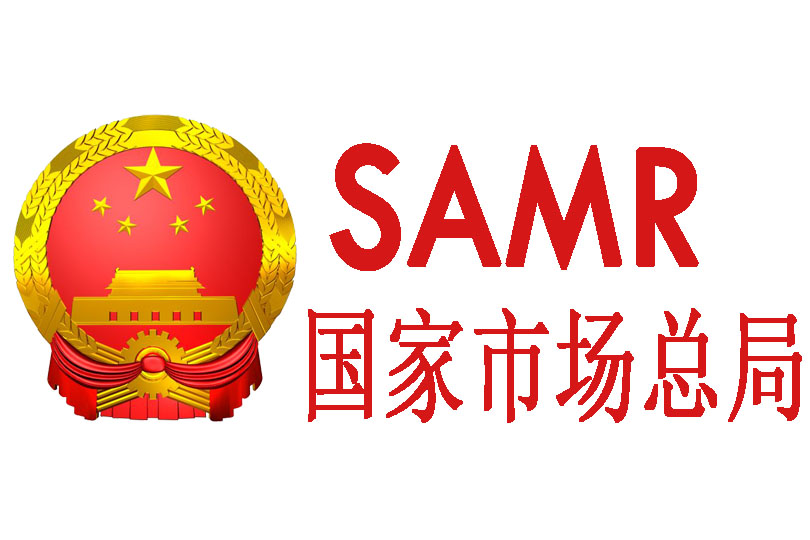Uninvestable? On the slippery precipice of China’s great Tech Unwreck

Via Getty
Someone’s told someone at Bloomberg that Chinese financial regulators and Jack Ma – now there’s a name you haven’t been hearing too often lately – are talking again of a possible Ant Group IPO after the giant Jack built under his Alibaba Group stumbled out of the wilderness last week, stunned-looking and emaciated after being a focal point of President Xi Jinping’s tech sector terror campaigns.
A lot’s happened in the two years since those crackdowns began, since Beijing snapped Ma back into line and nixed the world’s biggest public float. The world’s problems have multiplied, we’re minus one Hong Kong, China’s divided by zero-Covid and the word “uninvestable” has been added to the vocabulary and used to describe China’s once incredible tech sector.
We haven’t heard much from Ant, nor anything from Ma and the sector’s still all PTSD and awe from the shock of what happened back in November 2020 a few hours before Ant was due to light up both the Shanghai and Hong Kong indices with a nigh US$40bn IPO. Since then Ma’s IPO wannabe has been getting its claws pulled one at a time, undergoing its own Communist-era inspired sort of corporate re-education – in the form of a state-guided restructuring.
According to last week’s surprise ESG announcement – again, a kind of ritual self-criticism – it seems clear that Ant’s future is more tech, less fin’.
Frankly, I feel it’s a little premature to exhume the corpse of Ant, Alipay and those A-list names associated with Jack.

But either way, investors are going to be noting the emergent pattern – Beijing is sending its smoke signals that tech is back, and regulators are going to, very carefully, take their foot off the neck of the industry.
It’s been an eerie week of positivity. Policy makers are being nice. After a nine-month hiatus that put the Chinese games industry on edge, China’s culture regulators have finally started issuing new approvals for domestic games so they can be published within the country with the National Press and Publication Administration (NPPA) announced the approval of 60 new game licenses on June 7.
Chinese regulators cleared publishing licences Tuesday for 60 online games in this year’s second batch of new title approvals following an eight-month suspension.
The National Press and Publication Administration (NPPA) issued a list on its website late Tuesday of domestic titles granted licences, including computer and mobile games developed by Perfect World, Mihoyo and Migu Culture-Tech.
Left out however – industry titans Tencent Holdings Ltd. and NetEase Inc.
The omission of Tencent and NetEase extended their 11-month drought for new title approvals.
And needless to say, there was nary a foreign title on the list; in April, Tencent saw to that itself.
China has significantly slashed the number of approved titles since 2018, slamming the brakes on what used to be a circa 1,200 approvals a year gig.
The slowdown in new titles is hindering the national gaming industry’s 23 billion yuan (April) revenue, down 3.5% on last year, but Tencent’s in particular is hurting – sales growth is at its weakest in almost 20 years.
Facing a storm of arbitrary regulatory headwinds, Tencent and NetEase have naturally taken a crack at foreign traction. And while international game sales rose 4%, this was from acquisitions.
In May, NetEase boss Ding Lei reckoned the foreign market would soon contribute as much as half of its total gaming revenues, up from the meagre 10% average.
Regardless of the twin giants remaining in the doghouse at home, UBS reckons this signals a potential resumption of monthly approvals while it’s certainly fanned hopes that the NPAA are easing their tight leash on the industry and will allow more new games.
UBS notes two positives in this round of approvals:
- More licences issued than the 45 in the April batch, though still below the pre-suspension level of 80-90;
- Local departments of the NPPA approved some 16 titles in this current batch – suggesting potentially increased independent review/approval capacity
The administration had been in the business of offering its new list of approved titles every month from around 2017.
And the eight-month silence just added to the atmosphere of fear and loathing among investors and businesses of a repeat of a 2018 crackdown that left the industry with no new title approvals for nearly 10 months.
Tencent and NetEase were also the first against the wall in that one, and left out from the first batches of approvals.
Open sesame?
Although not a direct beneficiary, it’s interesting to note that Alibaba was among the top gainers, rallying 15%, bringing its total rally to almost 30% in three days.
For the year so far, Alibaba is now flat and has broken its downtrend. Convincingly. The giant’s valuation, UBS notes, “affords it significant upside.”
Thursday in the States, the New York-listed Chinese names rallied happily for a third day. Alibaba Group among the top gainers, stealing a 15% march to a 2022 peak. The e-commerce firm JD.com rose 8%.
The well conceived, wonderfully-named if not reliably performing Nasdaq Golden Dragon China Index jumped almost 6% on Wednesday, nudging a 2022 high and extending a nigh 10% surge across the week.
The recent rally in US-listed Chinese companies has the Nasdaq Golden Dragon Index outperforming the Nasdaq100 Index for the year. The shift in performance by the two technology-heavy benchmarks comes just months after Wall Street debated whether China tech was “uninvestable”.1/2 pic.twitter.com/NGrEN2mf0J
— Jean-Charles GAND (@jeancharlesgand) June 7, 2022
After the beating comes the gratitude
It’s exciting, even ingratiating that policymakers are reawakening the Chinese tech dragon.
But for a Chinese president who covets and now almost holds total power, these hugely profitable and even formidable tech sectors – the online shopping giants, the innovative fintechs, the gamers and even the online educators – needed desperately to be reminded nothing and no-one can overshadow, let alone compete with Beijing for the sun.
By Christmas, before the tech meltdown had begun to bleed into global tech stocks, China’s world-beating internet firms had lost an estimated US$1 trillion in value as Beijing took the companies and their creators off the board. By February this year Bloomberg estimates the seemingly unending and brutal selloff erased well beyond $US1.5 trillion from the sector.
But now, suitably cowed, and with the post-lockdown Chinese economy gasping for oxygen, comes the gentle touch.
The rolling back of arbitrary punishments, the official proffered hand of help, to net-ease the sector back off its knees.
The signs are everywhere and you needn’t read mandarin or Bloomberg to see them – officials are said to be done re-shooling Didi Global Inc (NYSE: DIDI) and all but poised to reopen the way for the company’s once ubiquitous apps to be welcomed back onto mobile platforms.
And look out – overnight – DidDi’s share price accelerated some 13%. Investors cheering a mysteriously fortuitively-timed Reuters report saying Didi is being courted by wonderfully-dodge, state-connected Sinomach Automobile to take control of a possible full-third of Didi’s electric vehicle (EV) ops.
China’s so-called Anti-Monopoly watchdog, the State Administration for Market Regulation (SAMR), would’ve taken some pleasure in revealing ecommerce giant Alibaba Group and on-demand service platform operator Meituan Dianping together contributed 92 per cent of the antitrust fines handed out in China last year, according to an annual report published this week.

“The anti-monopoly regulation of the platform economy sends a strong signal that the internet is not a place outside the law. The rules strongly promote the standardised, orderly, sustainable and healthy development of the platform economy,” the agency beamed.
They’ve done their time, if not the crime. Rehabilitation is a kind of rebirth for companies just as it is for individuals. Ask tough little Deng Xiaoping, ask our man Xi (whose dad did his time during the cultural Revolution), and – less likely – perhaps we’ll soon be asking Jack Ma, if he knows his new place.
SAMR was delighted to show its pound of flesh – well over US$3.5 billion or about 25bn yuan in so-called “antitrust” penalties last year alone.
That also gives some shape to the crackdown. It’s about 50x what was collected in 2020. $2.4bn (18 bn yuan) was slapped on Alibaba for its monopolistic success. A 3.5bn yuan hit for Meituan Dianping and its “irrational expansion of capital” in the tech sector.

Timeline: Putting China’s big tech back in place
November 2020
Ant Group forced to pull its IPO just 48 hours before trading was due to start, citing changes in the regulatory environment.
April 2021
Alibaba Group Holding Ltd. was fined a record 18.2 billion yuan for violating antitrust laws, marking a seismic moment in the government’s quest to rein in monopolistic behaviour by crazy online platforms. The penalty was three times as high as China’s previous record antitrust fine.
July 2021
The market regulator blocked the proposed merger of Huya and Douyu, two of the country’s largest livestreaming game operators. The planned merger was orchestrated by social media and gaming giant Tencent Holding Ltd and would have been valued at $5.3 billion.
August 2021
Tencent was ordered to relinquish all of its exclusive global music licensing deals and was fined 500,000 yuan for anti-competitive practices.
October 2021
Food-delivery giant Meituan was whacked 3.5 RMB for “anti-competitive” behaviour.
November 2021
Didi told to delist from New York.
UNLOCK INSIGHTS
Discover the untold stories of emerging ASX stocks.
Daily news and expert analysis, it's free to subscribe.
By proceeding, you confirm you understand that we handle personal information in accordance with our Privacy Policy.








